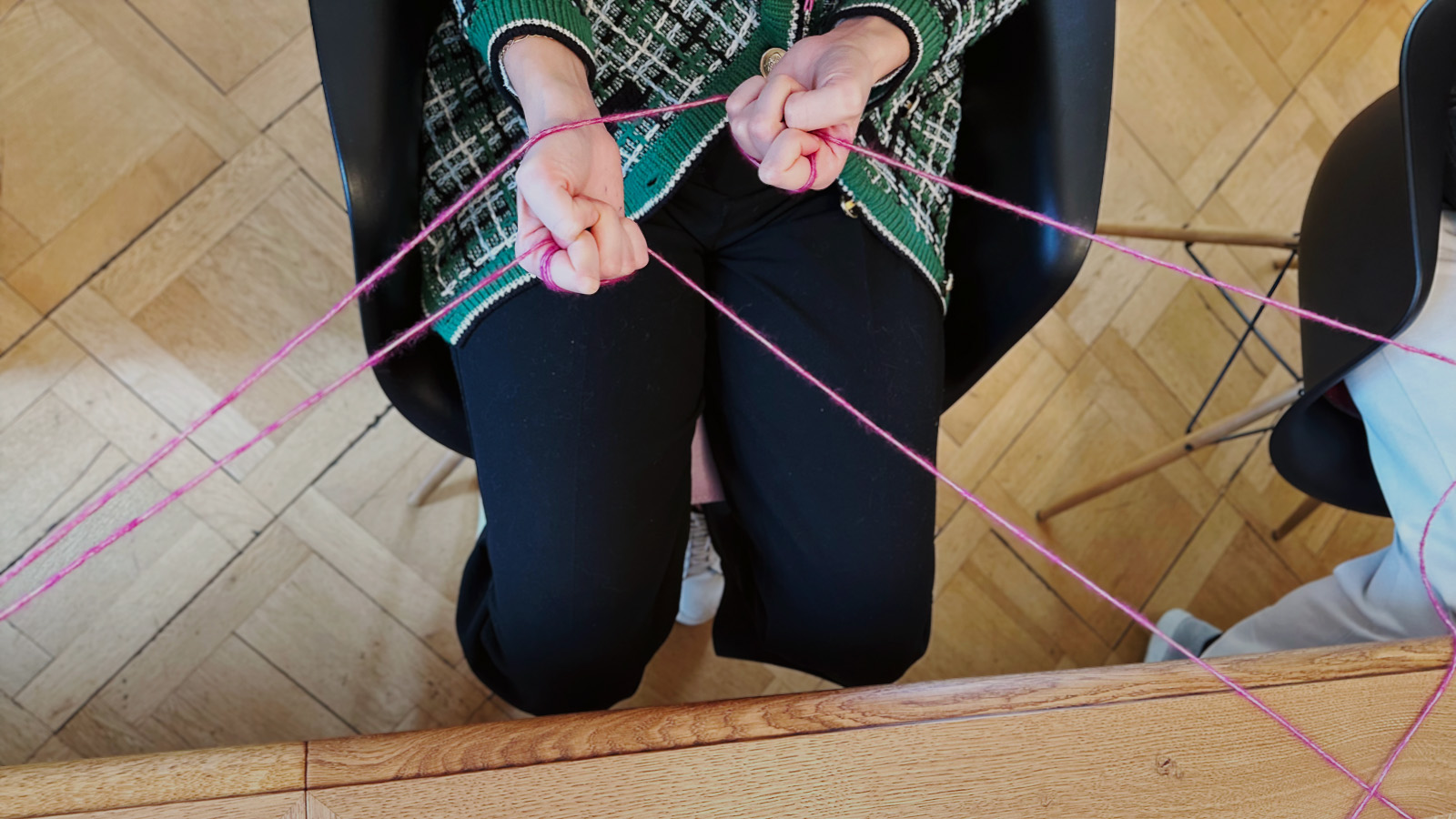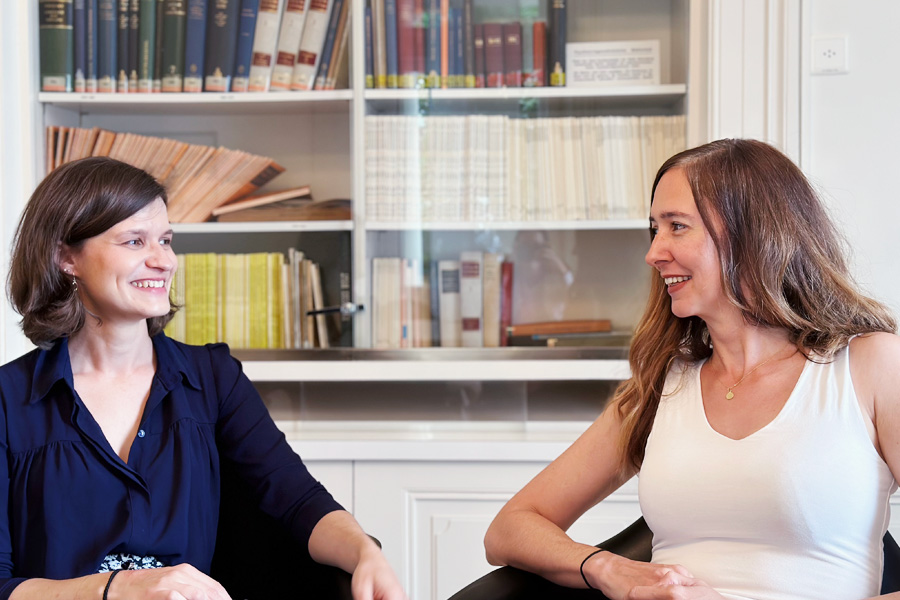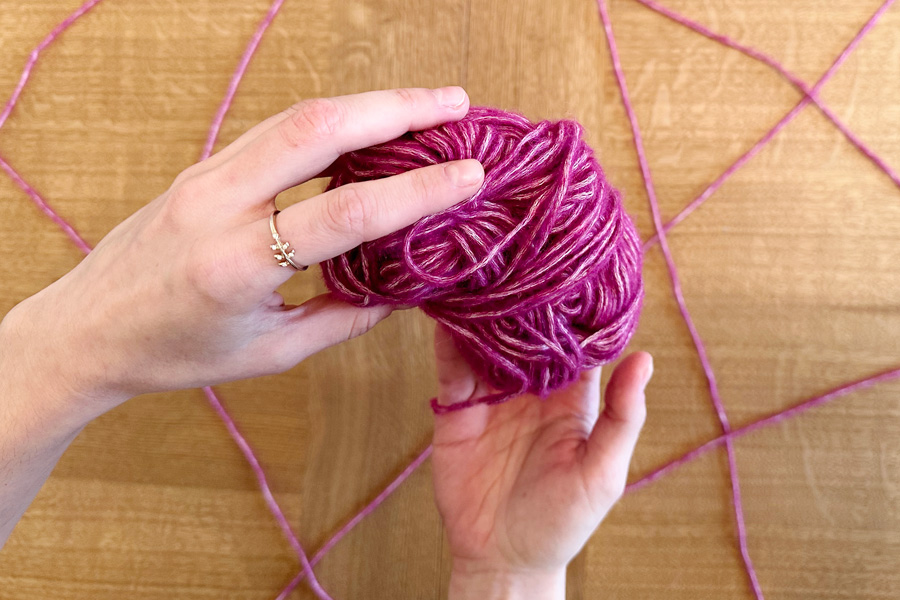Interaction between patients
A training ground for life
The interpersonal module group at Klinik Meissenberg is a group psychotherapy programme and offers our patients the opportunity to share their own experiences with others in a safe environment. At the same time, it provides a learning environment for shaping interpersonal relationships.

On this Wednesday morning, eight patients from the Depression and Burnout department are gathered in the meeting room at the clinic. The interpersonal module group meets here weekly – a group psychotherapy session led by psychotherapists Cornelia Künzler and Dalila Hodzic. One participant sums it up right at the start: “I feel that the group is like a “real life testing ground”. We can learn to shape our relationships differently here in a safe environment.” Because just like in real life, very different people meet here: The group consists of women of various ages, with different spheres of experience and issues.
The importance of interpersonal relationships for the soul
Group psychotherapy forms an important part of the therapy plan at the clinic, alongside individual psychotherapy, medical and professional care services and specialised therapies. The interpersonal module group focuses specifically on the treatment of depression. It is based on the assumption that mental illnesses develop and perpetuate themselves in an individual’s relationship with their environment. For example, difficult life circumstances and stressful life events, such as the death of a loved one, job loss, financial problems or adversarial relationships, can lead to the development of depressive symptoms. Depression is often characterised by an increased withdrawal from social relationships and a loss of faith in the effectiveness of one’s own actions. In most cases, early childhood trauma and negative formative attachment experiences also play a role. Withdrawal behaviour is also an issue this morning, as one patient says at the start of therapy: “I don’t want to talk today. I’m not feeling well today. Only one or two days in the last few weeks have been better; the rest have been difficult.”
Promote mindfulness for your own state of mind
This is universally understood: Every patient is welcome to participate in group psychotherapy to the extent that they are able. And everyone is given the opportunity to open up. The two therapists attach great importance to mindfulness. This also includes expressing your own feelings. Or to get a sense of: Where is my personal space and where are my boundaries? Because in everyday life, mindfulness for one’s own state of mind can often be overlooked. Cornelia Künzler explains: “We often go through our daily lives on autopilot in order to cope with the sometimes hectic pace of everyday life and its many tasks and challenges.” However, this is often the problem: “Mindfulness exercises help you to get a sense of your personal space and your own boundaries, but also to rediscover a sensitivity to the world around us.” Cornelia Künzler adds: “It can be compared to the tango, where you first need to be mindful of your own space and balance before you can connect with the other person and not lose your sense of balance”. A patient confirms: “In the group, I learned to get closer to other people and at the same time not to overstep my boundaries – that’s an important experience.”
“Mindfulness exercises help you to get a sense of your personal space and your own boundaries, but also to rediscover a sensitivity to the world around us.”
Cornelia Künzler
Theoretical foundation and underlying conditions
Group psychotherapy is intended to impart theory as well as provide experience in a social setting. In the interpersonal module group, patients learn to gain a better understanding of the factors behind their depression and to re-integrate into social relationships as active and self-determined people. The theoretical foundation of this psychotherapy group is based in part on the so-called Kiesler Circle model (more on this in the box). Strengthening relationship skills makes it possible to experience healthy and beneficial bonding experiences. Group psychotherapy is well suited to this, as behaviours and experiences can occur in relationships with other people that would not be accessible in individual therapy. In addition, the protected setting of group psychotherapy facilitates a valuable exchange of personal life experiences, as each participant is an expert in solving their own problems. “And aside from the individuality of each life story, we repeatedly find that everyone is confronted with similar life issues”, says Cornelia Künzler. “As therapists, we also participate in the group and often learn a lot from the life stories of everyone involved – and we’re really grateful for that. Being in the same boat creates trust. At the same time, everyone learns that they are responsible for their own lives and have to take control of them”, says Dalila Hodzic.

The importance of sharing experiences
This morning’s topic is energy providers and energy consumers. Each patient shares her thoughts with the group. The word “discipline” is the subject of particularly lively debate. There are different opinions on the meaning of the word. One patient says: “It takes discipline for me to tackle the things that are good for me.” Another counters: “I’m highly sensitive to the word discipline.” In this way, the group gathers a valuable wealth of experience. The authentic feedback on your own behaviour enables healthy self-reflection. “I feel accepted in the group, but the discussions really get me thinking. That in turn helps me to recognise: What just happened? Why do I feel hurt or disappointed now?” says one patient. Sharing experiences in the group builds trust.
Experiencing change – through practical exercises
Practical exercises are also carried out in each session. These help to ensure that the topics discussed can be experienced in a realistic way. “The practical exercises often leave a lasting impression on the patients and provide valuable experiences because they allow them to connect with their own self-experience”, says Dalila Hodzic. After all, personal well-being and growth only come about through a harmonised connection between experiences on a physical, emotional, mental and behavioural level. Calmness, connectedness, presence and a sense of centre are characteristics of good self-contact and enable autonomous action and authentic being in relationships.
“The practical exercises often leave a lasting impression on the patients and provide valuable experiences because they establish contact with their own self-awareness.”
Dalila Hodzic
This Wednesday morning, participants will experience how a sense of connection can be created in the social sphere without losing one’s own identity. A ball of wool is passed across the table. It is an exercise where no words are spoken. A web of wool gradually forms on the table, connecting each patient. The web offers a unique experience of a trusting and healing sense of cohesion. “Exercises like this help me to understand: I can connect with others about my personal worries and needs, so I don’t have to deal with them alone”, confirms a younger patient.

The effect of group therapy on everyday life
Which is clearly noticeable this morning is that each group participant is present in her own unique self and enriches the group in her own way. “Every group session is different and you never know which direction it will take”, says Cornelia Künzler. Today’s group meeting was dominated by lively discussion and a humorous mood. At the same time, there was a pensive and melancholy atmosphere in the air. “Group therapy is like jazz. Between the clearly defined conceptual structure, there is room to create something shared. Every single participant contributes to this through their involvement. Maintaining a resilient relationship with others, in which there is room for beautiful moments but also for unpleasant feelings, conflicts and stressful life issues, is a unique experience and ultimately represents life”, says Dalila Hodzic.
A patient who is about to be discharged says the following: “I now feel ready to return to my everyday life with this wealth of experience. I have also learned that I have to take responsibility for my own life, but at the same time I can be in touch with my fellow human beings.”
Kiesler Circle
The Kiesler Circle was developed by the American psychologist Donald J. Kiesler, who focused on the theory, diagnosis and therapy of interpersonal problems. The basic idea of the Kiesler Circle is that two people always influence each other when they communicate with each other. The Kiesler Circle makes it clear that our behaviour always has an impact on the reactions and behaviour of other people.
Kiesler Circle Training (KCT) is used for various psychological disorders such as chronic depression, burnout or personality disorders. It offers those affected the opportunity to gain a better understanding of their impact on others and to try out new behaviours. Through training in the Kiesler Circle, people can learn to react more flexibly to interpersonal situations, strengthen their own effectiveness in interpersonal relationships and improve communication. The aim is to build positive relationships and deal with conflicts effectively.
